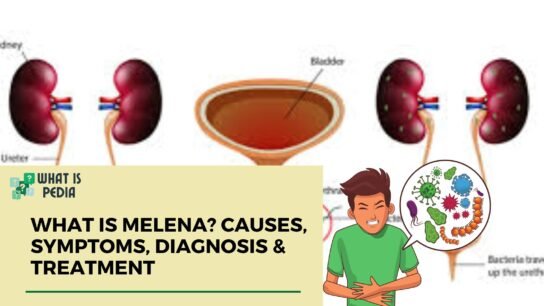Introduction
Hearing loss is a common health issue that affects millions of people worldwide. It can occur due to various reasons, including aging, genetic factors, infections, and prolonged exposure to loud noise. The ability to hear plays a vital role in communication, social interactions, and overall well-being. Impaired hearing can lead to frustration, isolation, and even mental health issues such as depression and anxiety.
Early diagnosis and intervention are crucial in managing hearing loss effectively. Many people ignore the early signs of hearing disability, which can lead to permanent hearing impairment. Recognizing the symptoms of deafness and seeking medical help at the right time can significantly improve one’s quality of life.
Hearing loss is more common than people realize. According to the World Health Organization (WHO), over 1.5 billion people worldwide experience some degree of hearing difficulty. This number is expected to rise due to factors such as aging populations, increased noise pollution, and lifestyle habits. Understanding what causes hearing loss and learning about the different types of hearing loss can help individuals take preventive measures and seek appropriate treatment.
This article explores the causes, symptoms, and types of hearing loss, along with available treatment options. Whether you are experiencing hearing loss hearing loss symptoms yourself or know someone who is, this guide will provide you with valuable insights to manage and prevent hearing impairment effectively.
Understanding Hearing Loss
What is Hearing Loss?
Hearing loss refers to the partial or complete inability to hear sounds. It can occur in one ear (deaf in one ear) or both ears and can range from mild to severe. Some individuals may struggle to hear specific frequencies, while others may experience complete hearing disability.
Difference Between Hearing Loss and Hearing Disability
While hearing loss refers to the inability to perceive sound clearly, hearing disability is a broader term that includes the impact of hearing loss on daily life. For instance, someone with hearing loss may struggle to follow conversations, while someone with hearing disability might require assistive devices like hearing aids.
Impact on Daily Life
Hearing loss can have a profound effect on personal and professional life. People with hearing difficulty may struggle with conversations, leading to social isolation. In workplaces, impaired hearing can affect productivity and communication. Additionally, hearing loss has been linked to cognitive decline in older adults.
Types of Hearing Loss
Conductive Hearing Loss
Conductive hearing loss occurs when sound waves cannot reach the inner ear due to blockages or damage in the outer or middle ear. Causes include:
- Earwax buildup
- Fluid in the middle ear
- Ear infections
- Structural abnormalities
Sensorineural Hearing Loss
Sensorineural hearing loss is caused by damage to the inner ear or auditory nerve. Common causes include:
- Aging (presbycusis)
- Noise exposure
- Genetic factors
- Ototoxic medications
Mixed Hearing Loss
Mixed hearing loss is a combination of conductive and sensorineural hearing loss. It occurs when damage exists in both the outer/middle ear and the inner ear.
Presbycusis (Age-Related Hearing Loss)
Presbycusis is a gradual loss of hearing that occurs with age. It primarily affects the ability to hear high-frequency sounds and can lead to difficulty in understanding speech.
What Causes Hearing Loss?
Hearing loss can result from multiple factors, including:
- Genetic factors: Some people inherit a predisposition to hearing loss.
- Aging (Presbycusis): Natural wear and tear on the auditory system.
- Exposure to loud noise: Damage to the inner ear due to prolonged exposure.
- Ear infections and diseases: Conditions like otitis media can lead to impaired hearing.
- Ototoxic medications: Certain drugs can damage the hearing nerve.
- Head injuries and trauma: Brain injuries can impact hearing function.
- Blockages: Earwax or foreign objects can obstruct sound waves.
- Autoimmune diseases: Conditions like lupus can affect the inner ear.
What Causes Deafness in One Ear?
Hearing loss in one ear, also known as unilateral hearing loss, can be caused by:
- Sudden sensorineural hearing loss (SSHL)
- Meniere’s disease
- Acoustic neuroma
- Ear infections and trauma
- Circulatory issues affecting the ear
Symptoms and Signs of Hearing Loss
Recognizing the early signs of hearing loss is essential. Symptoms include:
- Difficulty understanding conversations
- Ringing in the ears (Tinnitus)
- Frequently asking people to repeat themselves
- Can’t hear out of one ear or muffled sounds
- Trouble hearing in noisy environments
What is the Cause of Hearing Impairment in Different Age Groups?
Hearing loss can affect individuals at different stages of life:
- Newborns and children: Genetic conditions, infections, or birth complications.
- Young adults: Noise exposure, infections, or head trauma.
- Seniors: Presbycusis and degenerative changes in the auditory system.
When to Seek Medical Help for Impaired Hearing?
If you experience any of the following, seek medical help:
- Persistent hearing difficulty
- Symptoms of deafness that worsen over time
- Sudden hearing loss
- Ringing in the ears (Tinnitus)
- Ear pain or dizziness
Doctors may conduct hearing tests to diagnose the condition and suggest treatment options.
Treatment Options for Hearing Loss
Treatment varies depending on the type and cause of hearing loss:
- Medical treatments: Antibiotics for infections, earwax removal, or surgery.
- Hearing aids and cochlear implants: Devices that amplify sound for better hearing.
- Therapies and communication strategies: Lip reading and sign language.
- Preventing further hearing damage: Avoiding loud noises and using protective gear.
Conclusion
Hearing loss is a significant health concern, but early detection and treatment can improve quality of life. Raising awareness about what causes hearing loss and recognizing signs of hearing loss are essential steps in preventing long-term impairment. Taking care of ear health, avoiding excessive noise, and seeking medical help when needed can help prevent or manage hearing difficulty effectively.
If you or someone you know is experiencing hearing disability, consult a healthcare professional for a proper diagnosis and treatment plan.
Read More: What is Multiple Myeloma? Causes, Symptoms, and Treatment







